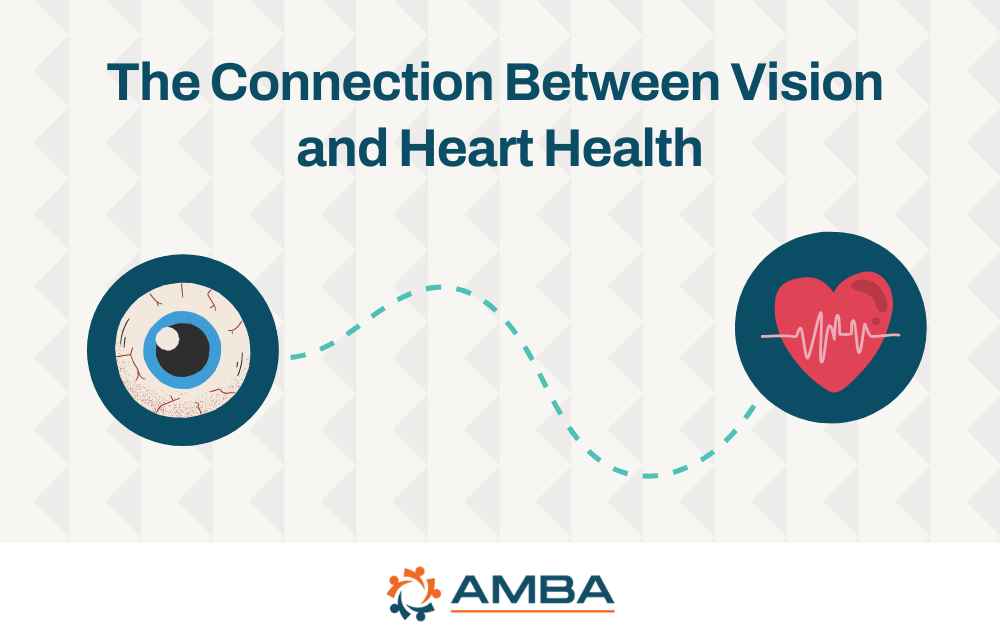
Seeing Signs of Alzheimer’s Through Your Eyes
May 1, 2023
We’ve all heard the expression that the eyes are a window to the soul. But a recent study has made a breakthrough discovery that our eyes can also provide invaluable information about our cognitive health.
What Is Alzheimer's?
Alzheimer's disease is a brain disorder that slowly erodes memory and thinking skills and, eventually, the ability to carry out simple tasks. Most people with the disease first experience symptoms in their mid-60s. It’s estimated that 500,000 Americans are diagnosed with Alzheimer’s each year. Within 30 years, the number of U.S. adults over 40 suffering from dementia is projected to rise from 5.2 million people to 10.5 million.
Alzheimer’s disease begins in the brain decades before the first symptoms of memory loss. By the time memory and behavior are affected, the disease is in advanced stages. That makes it much more difficult to reverse and reduce damage that has already significantly progressed. Researchers have been exploring ways to diagnose signs of Alzheimer’s disease before symptoms begin. By identifying the disease in its earliest stages, people can be more proactive in taking preemptive steps to control their modifiable risk factors, like high blood pressure, high cholesterol, and diabetes.
One of the great challenges of recognizing signs of Alzheimer’s disease is that the condition is difficult to diagnose. Although certain techniques can detect disease symptoms, they can be costly, such as brain scans, or painful and potentially dangerous, like spinal taps.
Instead, memory tests or behavioral abnormalities are frequently used to diagnose the condition, but the disease has progressed by the time these changes are observed.
The First Signs of Alzheimer’s May Appear in Your Eyes
A promising method is through the eyes. A recent, first-of-its-kind study examined donated tissue from the retina and brains of 86 people with different degrees of mental decline. This is the largest group of retinal samples ever studied. Researchers performed in-depth analyses of the protein profiles and the molecular, cellular, and structural effects of Alzheimer’s disease. They found significant increases in beta-amyloid, a key marker of Alzheimer’s disease, in people with both Alzheimer’s and early cognitive decline. changes in the retina correlated with changes in parts of the brain that serve as hubs for memory.
The study also found that microglial cells, responsible for repairing and maintaining other cells, including clearing beta-amyloid from the brain and retina, declined by 80% in those with cognitive issues. Tissue atrophy and inflammation in cells in the far periphery of the retina were most predictive of cognitive status, the study found.
These new eye tests may be an essential tool to aid early diagnosis of potential risks of cognitive decline and dementia. Ophthalmologists can already see directly into the nervous system by looking into the back of the eye, toward the optic nerve and retina. These new findings may lead to the development of imaging techniques that make it possible to diagnose signs of Alzheimer’s disease earlier and more accurately. It would be a major breakthrough to be able to monitor the disease's progression noninvasively by looking through the eye.
This is additional proof of how important healthy vision is to overall health. Already eye exams can reveal important information such as risks of diabetes, heart disease, high blood pressure, and cancer. That’s why the Vision Plan from ARSEA and AMBA is so important. The plan provides quality coverage with low copays for the services you need, including coverage for an annual WellVision exam. Sign up now at www.AMBAdentalvision.com or call 866-979-0497.
https://www.thelancet.com/journals/lanpub/article/PIIS2468-2667(21)00249-8/fulltext
RECENT POSTS

The Top Scams to Watch Out for in 2025
In our increasingly digital world, the top scams continue to evolve, with fraudsters developing new and sophisticated ways to
Read More

There’s More Connection Between Your Vision and Heart Health Than Meets the Eye
We all remember the song “Dem Bones,” with lyrics like “The hip bone's connected to the backbone.”
Read More

Fall in Love with a World of Savings This Valentine’s with AMBA Passport
Here’s some fun trivia about Valentine’s Day: it’s believed that Geoffrey Chaucer invented
Read More

How Often Should Older Adults Go to the Dentist?
The eyes may be the gateway to your soul, but oral health is a window into overall health. When it comes to your teeth and
Read More

